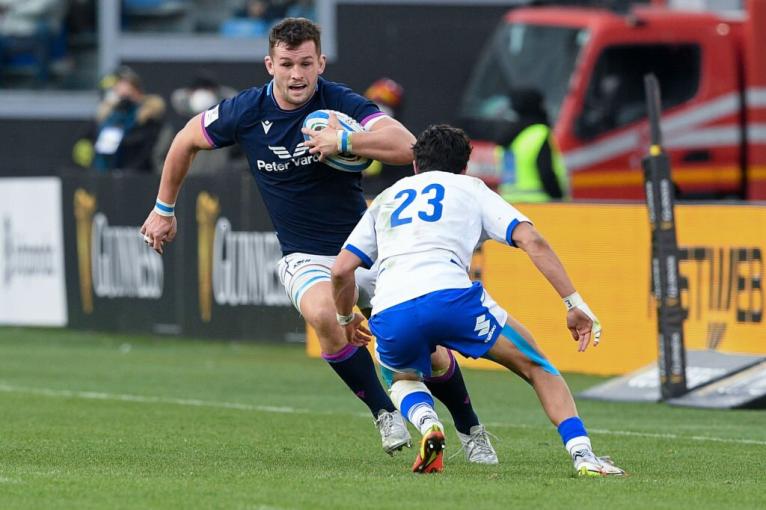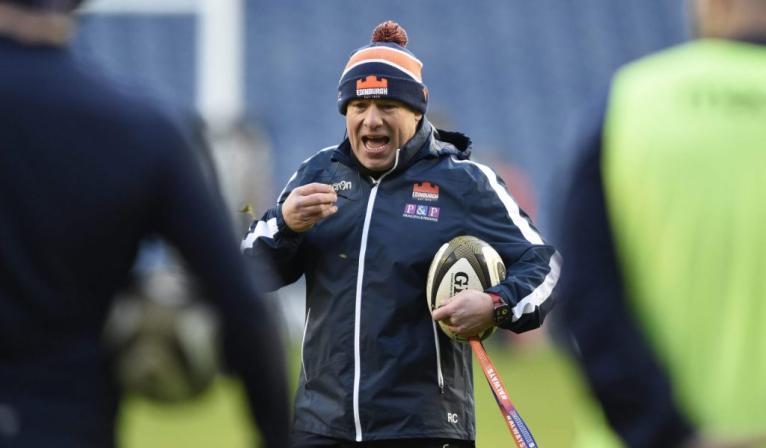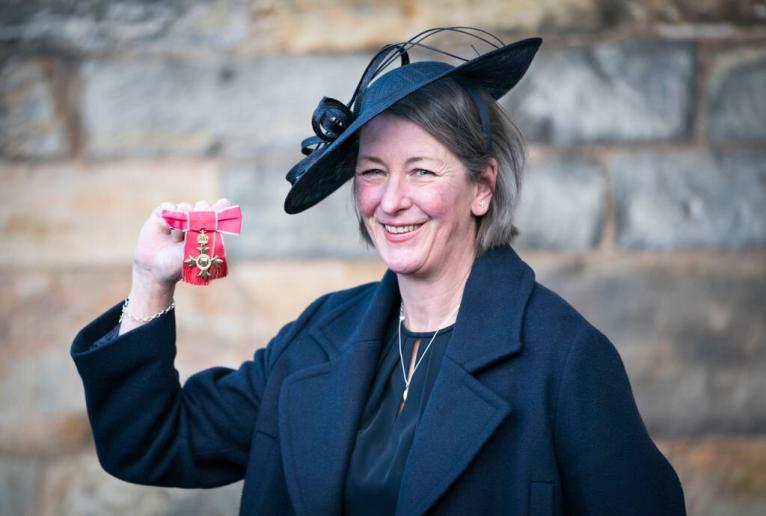Magnus Bradbury’s Edinburgh career began on a cold autumn evening in Dublin and could – though he hopes desperately that it doesn’t – end in the shadow of Table Mountain on Saturday night.
Nine seasons, 112 matches, 14 tries, and goodness knows how many metres hoovered up with ball tucked under a meaty arm. At 26, Bradbury has been an Edinburgh man all his adulthood and a little more besides, since the hours he and his parents would spend on the road trekking back and forth to the capital from their village near Oban, nestled on Scotland’s west coast.
He has played under three coaches. One made him captain, and then stripped him of the honour. He has won international recognition, was jettisoned from the squad and scrapped his way back in to it. He has known desperate family trauma away from the game. He has been part of rank defeats and unprecedented highs and in Cape Town on Saturday, longs to scribe a new chapter in the club’s history.
Scalping the Stormers would earn Edinburgh a first URC semi-final. Lose, and it’s all over. For Edinburgh and for Bradbury. Next season, he will be a Bristol Bear and when you ask him what the place he has spent more than a third of his life means, it is clear the endgame, whatever form it takes, will be emotional.
What it felt like and what people saw was a good 40, 50, 60 minutes, then the last 20 I was hanging on.
“This is all I’ve ever known; I’ve got so many friends here and it’s going to be hard to watch from afar. I’m going to be gutted [after my last game]. But from a completely selfish point of view, there’s a time to move on.”
It is a shame for Edinburgh to be losing – or, depending on whom you listen to, letting go of – the back-row after his finest campaign yet. Mike Blair’s squad is stacked with quality loose forwards but Bradbury has been the pick of the bunch this season, delivering his snarling, abrasive best. He ended a two-year wait for his latest clutch of caps during the Six Nations. He is one of Edinburgh’s most prolific carriers in attack and poachers in defence and crucially, he is doing all this work consistently.
For a long time, a damaging perception has dogged Bradbury. Rugby folk thought him too erratic, too prone to fading in and out of games when to compete at the levels to which Edinburgh aspire, flakiness is no use. A 6ft 4ins number eight cannot follow a blockbuster carry with ten ghostly minutes.
“It’s a completely fair criticism,” Bradbury concedes. “What it felt like and what people saw was a good 40, 50, 60 minutes, then the last 20 I was hanging on.

“I lost 3kg or 4kg this summer, I’m about 113KG which is definitely the best weight for me. Less mass to move around, more power. I had a very power-orientated pre-season, not gaining weight or getting as strong as possible. It was short, sharp, explosive movements, lots of jumping. That has paid off massively.
“And the way we train is all rugby, high-intensity. You mess up, that’s it, move on. It’s very match-based and relatable to playing on the weekend. Before, I felt like we were doing things for the sake of it, ticking a box that didn’t need to be ticked. Look at anyone else who has been revitalised this season, it’s all down to the way we are training and being supported off the field.”
Bradbury doesn’t say it, but hints about the welcome contrast from the previous regime are apparent. He talks up Mike Blair’s “player-led” environment, worlds apart from the autocratic approach favoured by Richard Cockerill which eventually ground a weary squad down.
Blair has reimagined what Edinburgh can be without abandoning all the truculence Cockerill implanted in them. He has laced the grunt with sparkle and the results have been frequently spectacular.
I’m not the most mature person in the world by a long stretch but that was a turning point to realise there’s a time to grow up.
“I don’t want to knock the way we played before because I don’t see there being one right way to play rugby,” Bradbury goes on. “A lot of our game was based on our forwards beating up other teams. We were good at that style but it was one-dimensional and when our plan A was taken away, we didn’t have much to fall back on.
“We’ve still got that, but we’ve got the width and talented backline to play off that, and really put teams to the sword. Now, we’ve taken the good stuff from how we were back then – the hard pack, the directness – and built on that with calling what we see and being ourselves, rather than having one job to do and doing it the whole game.
“Everyone is encouraged to play the ball and use extra passes. Sometimes it doesn’t come off, but we’ve scored some great tries and played some amazing rugby this season. That doesn’t take away from these hard fundamentals Cockers instilled in us from the beginning. We shouldn’t ever lose sight of those fundamentals.”
The relationship between Cockerill and Bradbury withstood some serious jolts. At 22, he was Cockerill’s first captain when the Englishman took charge in 2017. Bradbury’s stint as skipper lasted less than three months. He hurt his head on a night out, tried to conceal the incident from his coach, was investigated, suspended, and had the captaincy revoked.
“I’m not the most mature person in the world by a long stretch but that was a turning point to realise there’s a time to grow up,” he says.

“I won’t talk about the incident, but it was investigated, the captaincy was stripped, and Cockers was very black and white: ‘there’s a line drawn, it’s up to you how you want to react to this’.
“I don’t know why, but I respond well to challenges like that where I need to work bloody hard. It took a while, but it was showing him I still want to be here, and be a key part of the team. I remember the tail end of that season incredibly fondly because I was playing some good rugby, we were in a play-off for the first time.
“It was a big learning curve – put it that way. People do dwell on bad things, but it’s about how you react. If it’s shit, it’s shit, but you need to get on with it.”
For all players talk of fresh stimuli and new environments, now seems an odd time to leave Edinburgh. Bradbury will swap Champions for Challenge Cup rugby, and a team on the up for one whose progress has stalled. Bristol are a huge club with a fanbase the envy of most in England, but a 10th-placed Premiership finish makes grim reading.
“There’s no regret,” Bradbury says. “I like being outside my comfort zone. I pride myself on the attritional side of my game and I want to challenge myself in the most physical league in the world. The Premiership is relentless and being exposed to that – not to say the physicality isn’t here in the URC – excites me.
“Bristol have got the capabilities, the players who can take them to finals, to the Champions Cup the following season. Everything can change so, so quickly. I could always end up back at Edinburgh later in my career.”
My dad ultimately saved her life. Her heart stopped for a minute or so. He managed to do CPR long enough before she got attention from my neighbour.
Bradbury has always responded well to the tossing down of a gauntlet. But rugby could never prepare him for the horrors of summer 2020. His mother Dee is a former player, police investigations officer and four years ago, became Scottish Rugby’s first female president. She was awarded an OBE in January and there is a beautiful picture of her and her son embracing on the pitch before the 2020 Calcutta Cup match, as she conducts her presidential hand-shaking. A few months later, the Bradbury clan came heinously close to losing their matriarch.
On that warm June evening, as she and husband Nick barbecued in their garden, Dee collapsed. Heart attack. No pulse. Breathing stopped. Nick has since described the “choking sound” he heard before she fell. What happened next was astonishing and heroic.
“My dad ultimately saved her life,” Bradbury says. “Her heart stopped for a minute or so. He managed to do CPR long enough before she got attention from my neighbour, who had recently moved in, and done a bit of work to install a defibrillator down by the village where we stay. My dad kept her heart pumping while the neighbour ran down and got the defibrillator.

“If my dad is working in the office, my mum is out in the garden. They can go hours without seeing each other. It just so happened it was when they sat down to have dinner. There was a lot of luck involved, but my dad and our neighbour can’t get enough recognition.”
Three hours away, trapped by Covid restrictions, Bradbury could do little but wait and hope.
“I was in Edinburgh, in full lockdown. It was always encouraging we weren’t allowed to go in and see her – for end-of-life care, they’d let close family in.
“It was just as we were starting to come back to isolated training, running lanes and stuff. I’d say to anyone going through a tough time like that – keep yourself busy. There’s nothing you can do outside the hospital; you can’t bring her back to how she was. I stuck at training, and luckily, she progressed and was released from hospital a month or so after we could mix households.
“The doctor wasn’t sure how the brain would respond to being without the heart for that long. We are so, so lucky that she made a full recovery. She’s back to being a mum again.”
He shakes his head at the memory of it all. While he may reflect on the past and savour the future, Bradbury is rooted now in the present. He has to be. The Stormers are one of the URC’s deadliest units, a side whose rip-roaring flair is underpinned by a brutal pack.
Bradbury thundered over for tries against Wasps and Glasgow in Edinburgh’s past two matches. The smiting of the Warriors before 25,000 at Murrayfield was particularly sweet, perhaps his last outing in the great navy bowl for a while. The quarter-final brings an almighty challenge.
“We’ve shown we can put away any team in this league home and away. We’re the first and one of the only teams to win out here this season. We had one of our best sessions of the season this week. We want to create a really special result.
“Although Stormers score some of these worldies and wingers run in from however far, the battle is won up front first. We’ve talked a lot about being in the moment, winning the scraps, the loose balls, concentrating for a full 80 minutes because we’ve been punished by switching off at crucial times, and we’ll be punished even more in this game.
“On a personal note, I talked last week about finishing on a high in my last home game against Glasgow. Now I want to finish on an even bigger high with a home semi-final or a final. That’s my driver, to create a last couple of special memories with the boys I’ve played with for nine years.”


Comments
Join free and tell us what you really think!
Sign up for free